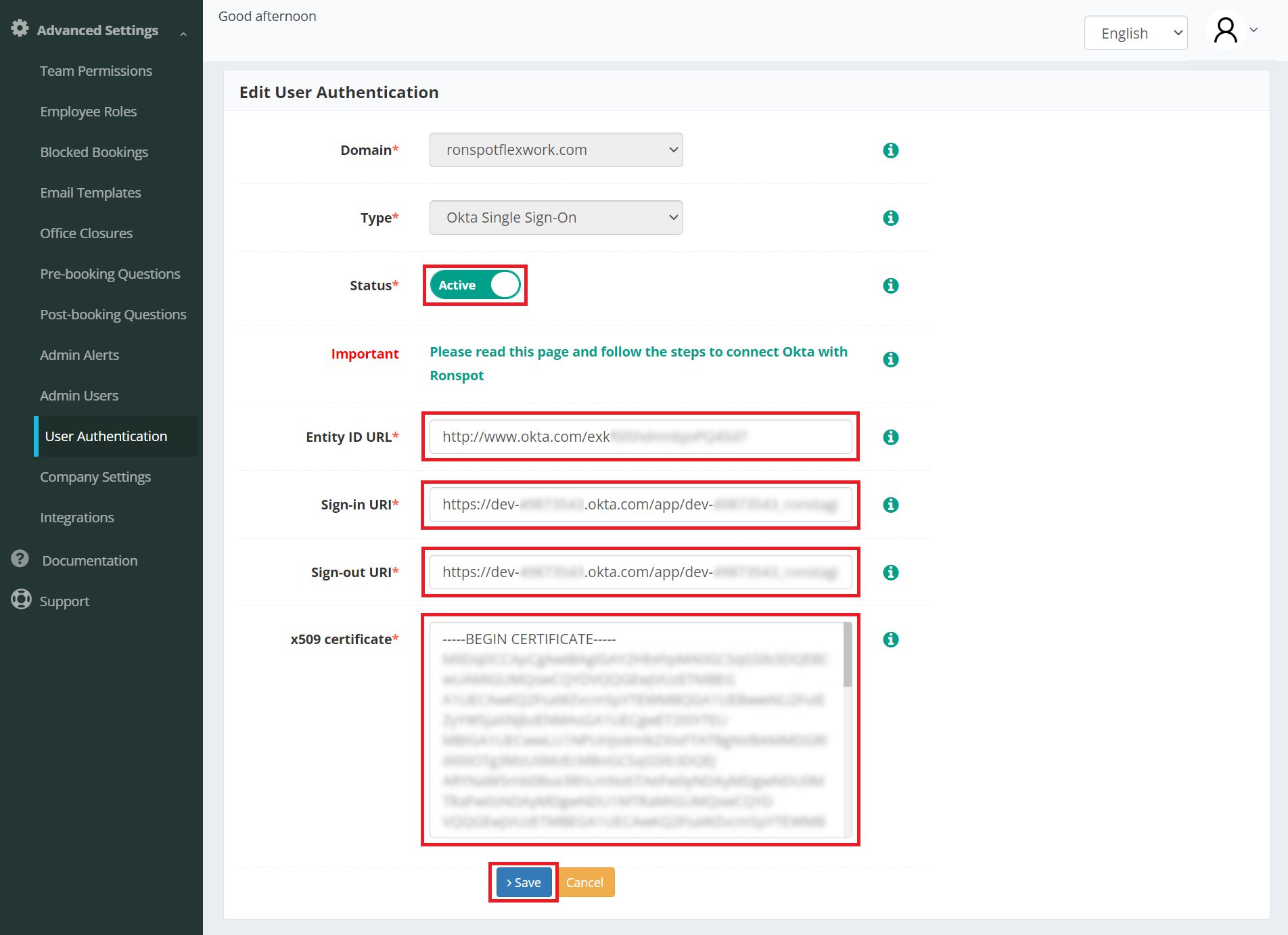Step 1 – Login to the Ronspot admin panel
Step 2 – Go to ‘Advanced Settings > User Authentication’
In the sidebar menu, click on Advanced Settings, then select User Authentication
Step 3 – Click on the ‘Okta’ icon
Find your domain name in the list, then click on the Okta logo in the Okta column (highlighted in red below).
Note: If your domain name doesn’t appear in the list, simply click on the Add New Domain button to add it.
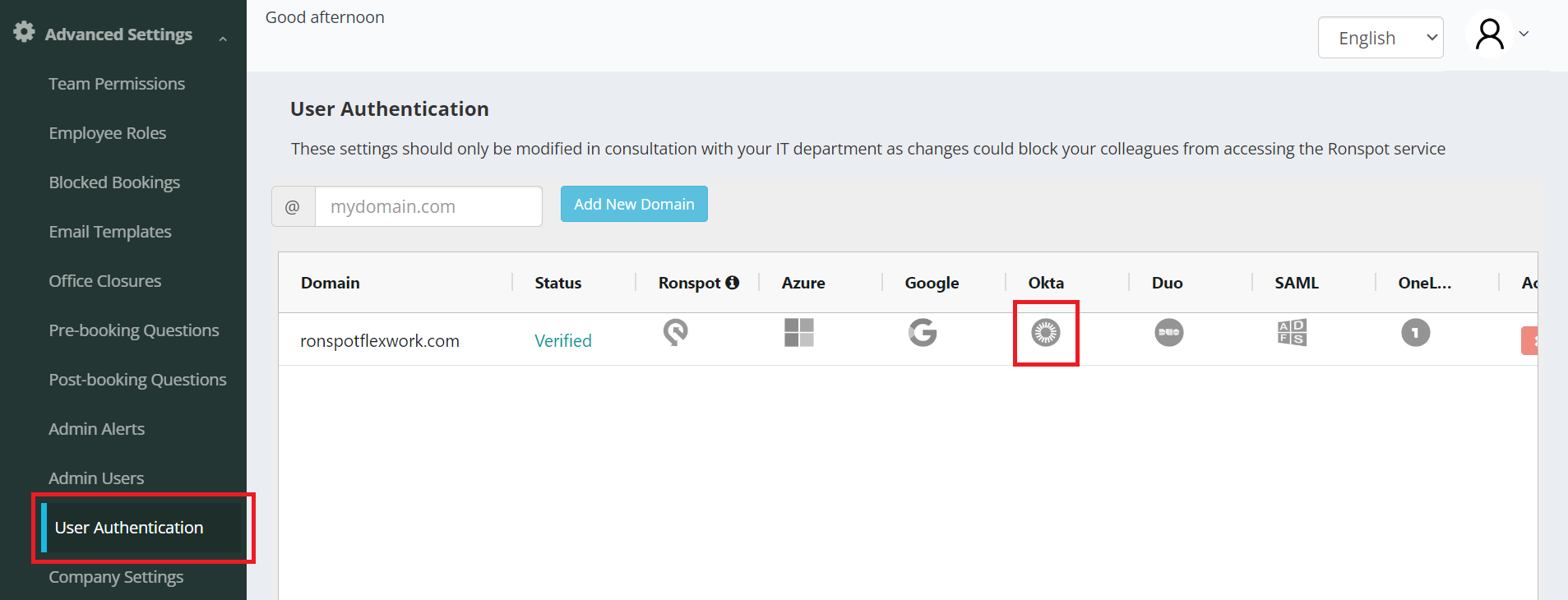
Step 4 – Copy the 4 URLs
Scroll down and copy the following 4 URLs:
- Single Sign On URL
- Recipient URL
- Destination URI
- Audience URI
These URLs are specific to your account, you will need them further for step 10.
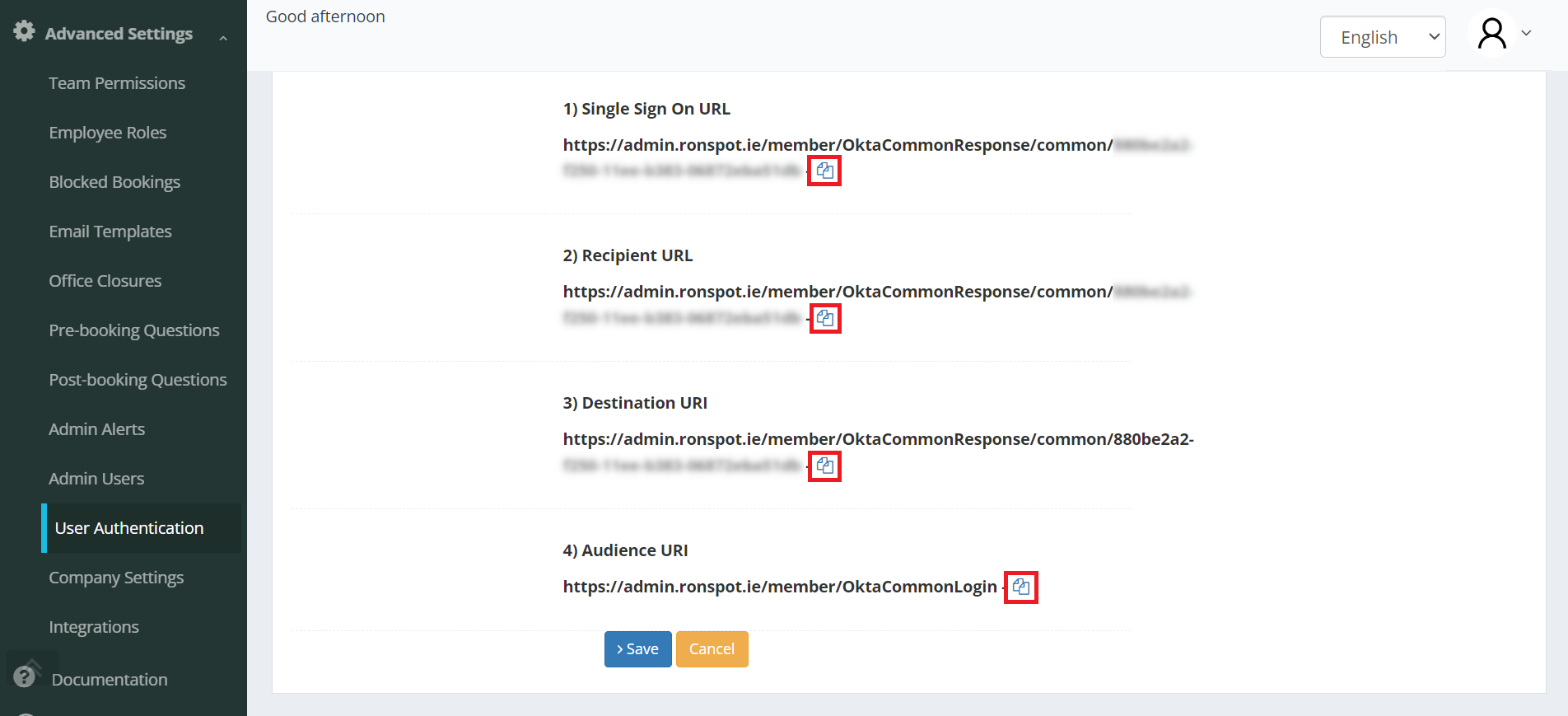

Step 5 – Login to OKTA
Navigate to the OKTA website and login with your company credentials.
Step 6 – Go to ‘Applications’ → ‘ Applications’
In the sidebar menu, choose the menu item Applications. This will expand to show another Applications option. Click on this.


Step 7 – Select ‘Create App Integration’
To create a new application click on the Create App Integration button.
Step 8 – Choose ‘SAML 2.0’
- Sign-in method: SAML 2.0
- Application Type: Web Application
- Click on Next
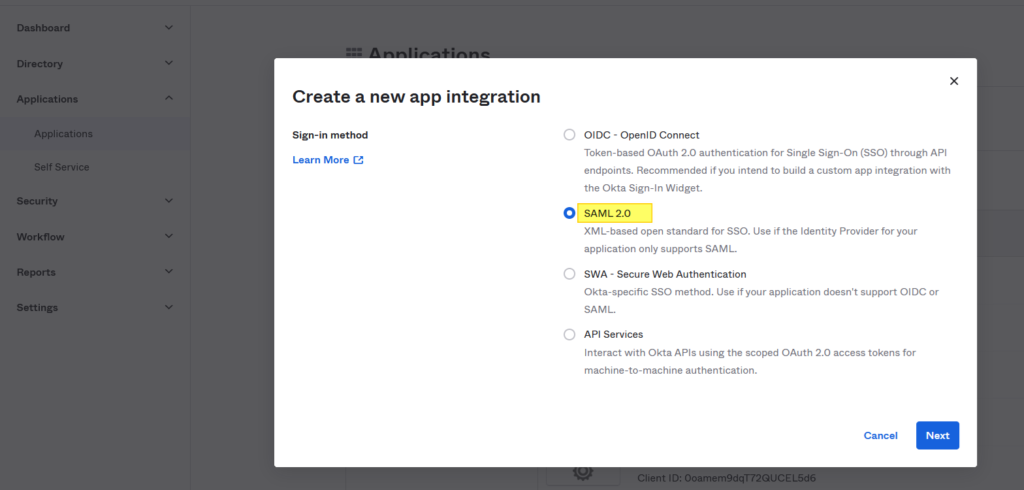

Step 9 – Complete the ‘General Settings’ section
- App Name: Ronspot
- Logo:


- Click on Next
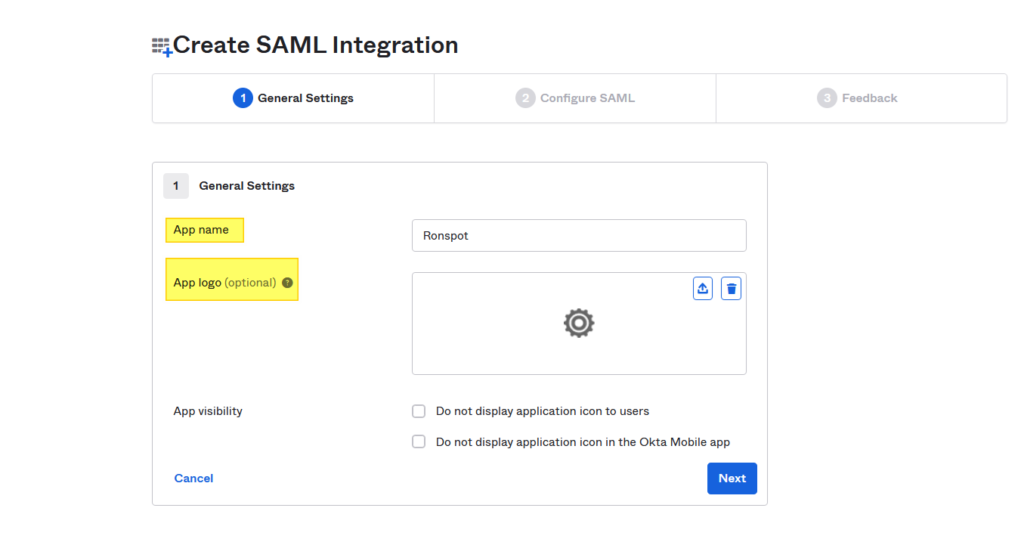

Step 10 – Paste the values from Step 4
- Single sign on URL: Paste the “Single Sign On URL” (see step 4)
- Audience URI (SP Entity ID): Paste the “Recipient URL” (see step 4)
- Destination URL: Paste the “Destination URI” (see step 4)
- Audience Restriction: Paste the “Audience URI” (see step 4)
- Click on Next


Step 11 – Complete the ‘Feedback’ section
- Are you a customer or partner? : I’m an Okta customer adding an internal app
- App type: This is an internal app that we have created
- Click on Finish
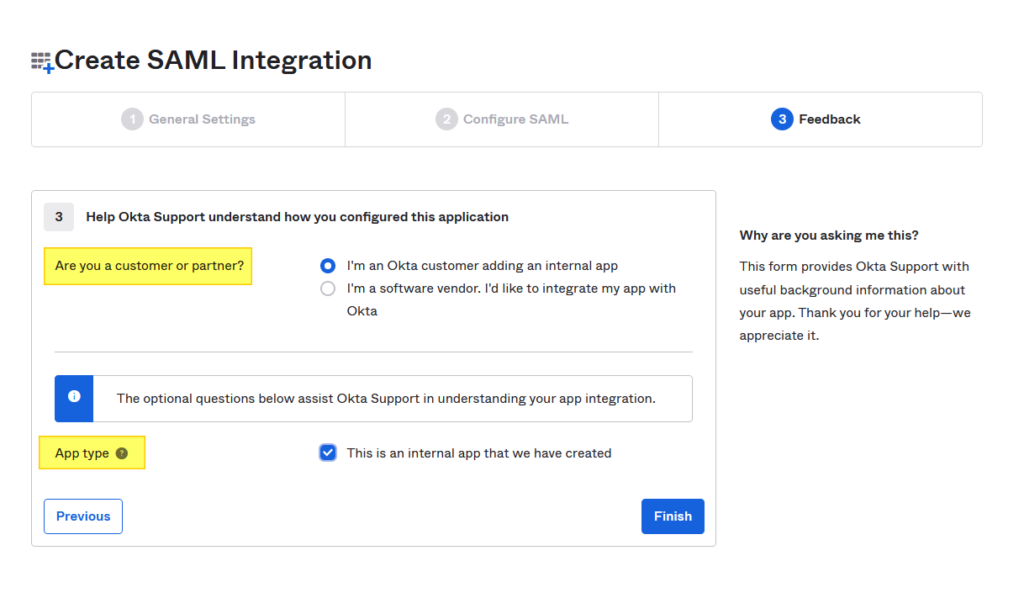

Step 12 – Go to ‘Assignments’ and select employees
In the Assignments tab, you can select the employees you want to give access to. You can grant access to all members of your organisation or restrict it to some.


Step 13 – Go to ‘Sign On’ section and click on ‘View setup instructions’
Scroll down to the Sign On tab, you will be able to see the View setup instructions as below, please click on it.


Step 14 – Copy the values for step 21
It will open the page below. Please copy these field values:
- Identity Provider Single Sign-On URL
- Identity Provider Issuer
- X.509 Certificate


Step 15 – Go to the ‘Security’ → ‘API’ → ‘Authorization Servers‘
In the sidebar menu, choose the menu item Security.
This will expand. Click on the API option. There are 3 tabs. Please select the Authorization Servers tab.
Step 16 – Add authorization server
Then click on the Add Authorization Server button. Fill out the 3 fields in this form and click on the Save button. Give it any appropriate name. See the image below.
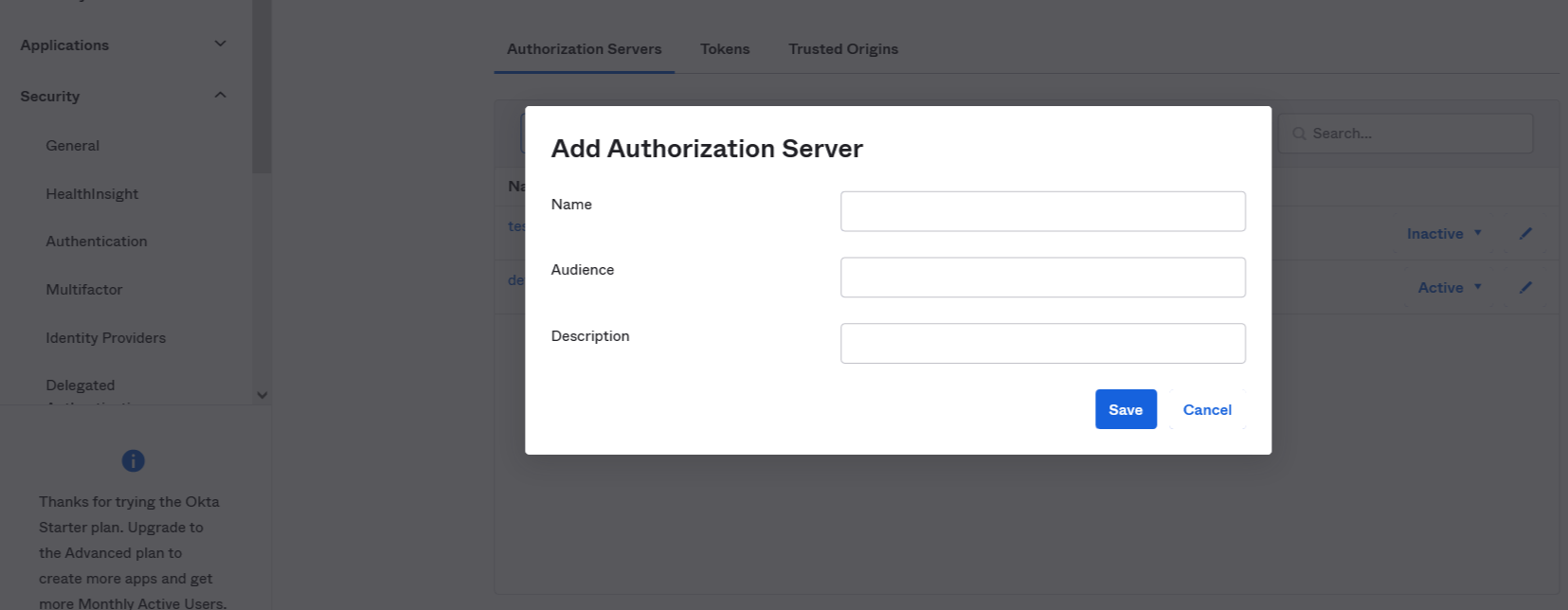

17 – Create a token
Go to the Tokens tab and then click on the Create Token button. In the subsequent pop-up, give it any appropriate name and then save it.
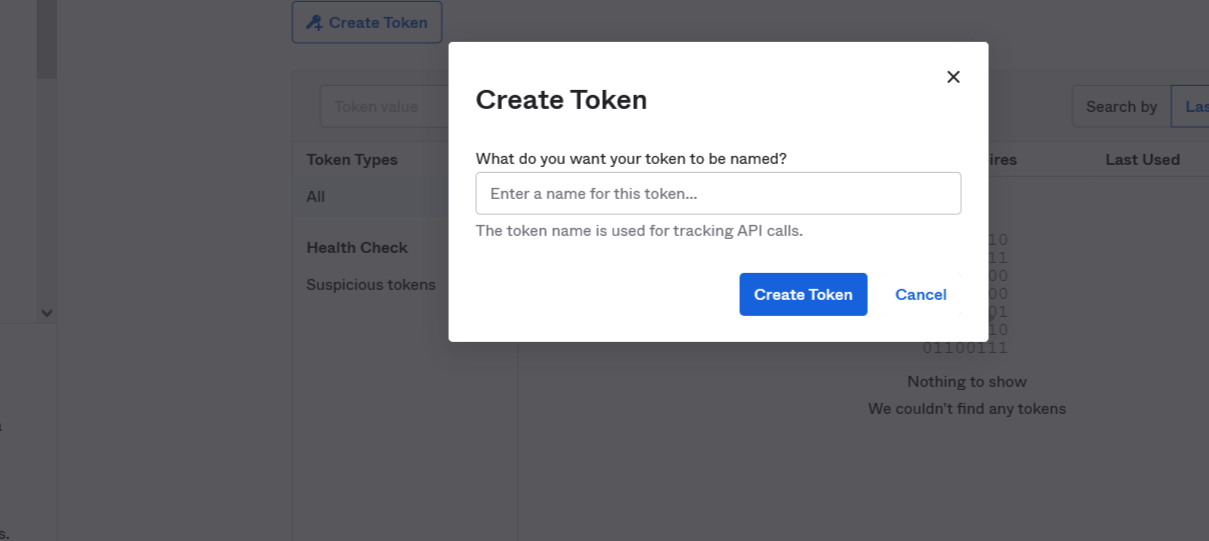

Step 18 – Go back to ‘User Authentication’ in the Ronspot admin panel
In the sidebar menu, click on Advanced Settings, then select User Authentication
Step 19 – Click on the ‘Okta’ icon
Find your domain name in the list, then click on the Okta logo in the Okta column (highlighted in red below).



Step 20 – Switch to ‘Active’, paste the values (from step 14) and Save
- Toggle the switch from Inactive to Active on the Status line so that it turns green and displays Active
- Paste the Identity Provider Issuer (see step 12) into the Entity ID URL field
- Paste the Identity Provider Single Sign-On URL (see step 12) into the Sign-in URI and Sign-out URI fields
- Paste the X.509 Certificate (see step 12) into the X509 certificate field
- Remember to click Save.
